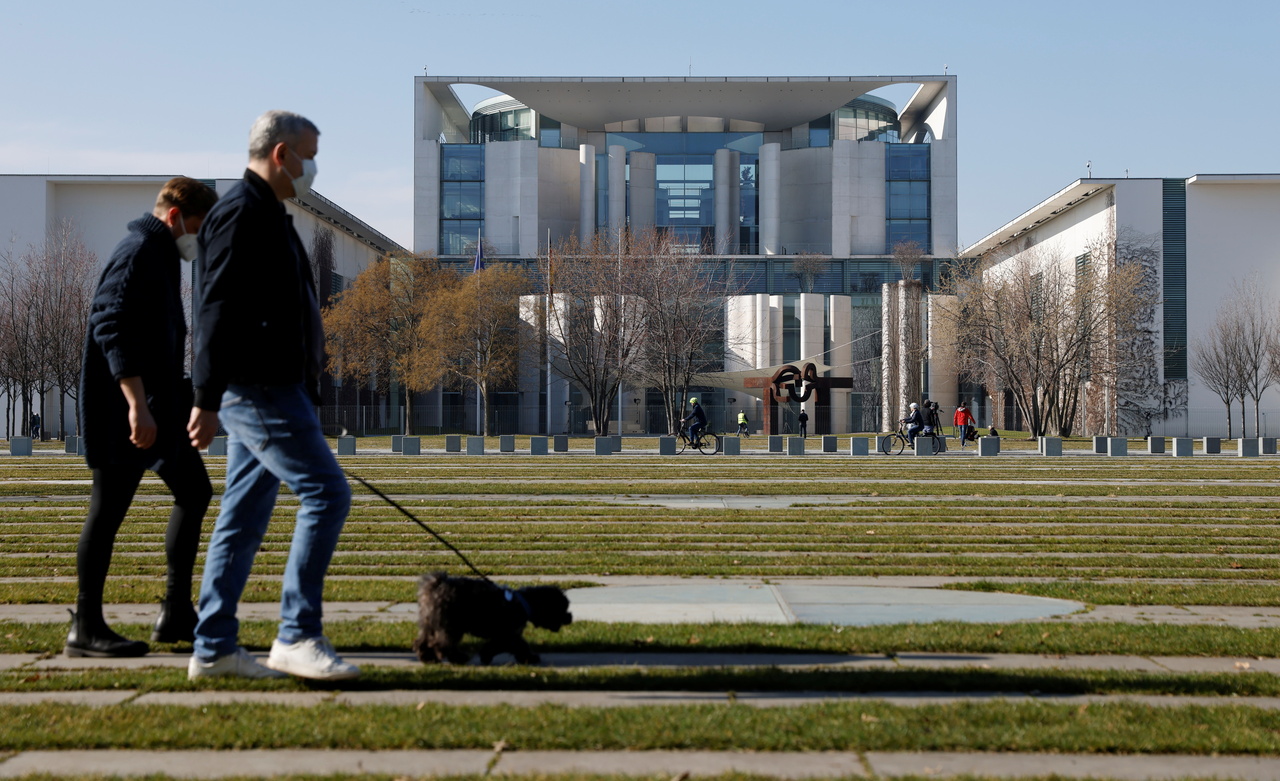Merkel sets path to gradually ease Germany's Covid-19 lockdown
Sign up now: Get ST's newsletters delivered to your inbox

Remaining restrictions will continue with further easing steps tied to local contagion rates.
PHOTO: REUTERS
BERLIN (BLOOMBERG) - German Chancellor Angela Merkel set out a plan to gradually unwind restrictions on Europe's largest economy, bowing to pressure from the pandemic-weary public.
After hairdressers resumed operations on Monday, the next step will start on March 8, the German leader said late Wednesday (March 3) after more than nine hours of tense talks with regional officials.
Further easing steps can follow every two weeks depending on local contagion rates, while an "emergency brake" was set up to react to hot spots.
Remaining restrictions - including the closure of hotels, restaurants and other non-essential retail outlets - were extended until March 28, with the next round of talks set for March 22.
"It is now the task of politics to take the next steps," Dr Merkel said. "These need to be easing steps, but at the same time they shouldn't throw us back" and lead to a "dramatic third wave."
Amid resistance from some state premiers, the chancellor backed off her hard line, effectively acknowledging that the targets she set for the contagion rate would not be reached anytime soon.
She opened the door to the move last week, saying Covid-19 testing could provide a "buffer" to allow easing sooner.
Germany will also accelerate its immunisation programme, using the maximum time allotted between first and second doses to get more people some level of protection from the disease.
"We want to be as flexible as possible, as we know we're in a race against time," Dr Merkel said. "We can give the first inoculations to more people at a faster pace."
Doctor's offices will also be integrated into the campaign by early April, she said.
Germany's sluggish ramp-up of inoculations has added to pressure on the government. The country has administered 7.7 doses per 100 people, compared with nearly 32 for the UK, according to Bloomberg's Coronavirus Vaccine Tracker.
In February, Dr Merkel pushed to lower the target rate to 35 new infections per 100,000 people over a seven-day period amid concerns about more aggressive coronavirus strains. The hurdle has been reset at the earlier level of 50.
The latest figure edged down to 64 on Wednesday, roughly the level that it has been at for three weeks, according to data from the RKI public health institute.
As more people come into contact with one another, Germany will widen testing significantly.
Companies will have to offer employees who aren't working from home at least one quick test a week, while all citizens will be allowed to receive a free weekly test.


